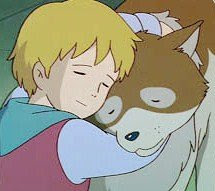This is one for the environmentalists among us.
A few days ago I was on the road once more, advocating for a large environmental organisation that is active for the conservation of endangered species, ecosystems and biodiversity. I meet a lot of people that are annoyed by my enthousiastic ravings. And I meet opponents. Most of the time, they are badly informed and even if I can't convince them or challenge their opinion, I still have the satisfaction of being right.
That day, I was beaten. I encountered some of those rare persons that have a lifetime of experience and are still compassionately driven for the same cause, but have left my organisation in bitter disappointment already a long time ago. This man, a fourty-something veterinary and surgeon, explained me in a mood of growing rage how large systems and organisations tend to suffocate their own purpose and become bureaucracies, tankers that have lost the power to act in a creative way and can not make a significant difference any more - they simply exist and keep themselves alive. He gave a wealth of examples from biology, economy, and managerial sciences (health industry, corporate decision processes, environmental lobbies).
While he spoke I slowly came to understand the origin of his anger. From childhood on, he was fascinated by small amphibians and reptiles. Like his father before him, he had become a specialist and a collector, breeding the species at home for years. He repeatedly cited their Latin names like it was daily use for him.
In Belgium, and especially in the Flemish region, the nearly-extinct species are no longer to be found on farmlands (poisoned to death), nor in environmental protection zones (due to mismanagement). Environmental lobbyists that influence the decision-making are mostly not the specialists in biodiversity, but amateurs of certain birds and popular wildlife. They are not capable of and not even open for the adequate, extremely delicate governing of the protected lands.
Consequently, the only spaces left for the endangered reptiles and amphibians are the industrial parks and construction zones. But because they live there, they officially do not exist for the environmentalists. What happens next is that the bulldozers and concrete mills are always the first to find them.
This veterinarian claimed the need to count, list and rescue these species and their larvae, but was not taken serious by the environmentalists. The latter prefer to undertake excursions in France to find species that are not more than a few miles away from each Flemish town, though in the 'black zones' that are not acknowledled. But, luckily, the man continued, there are a few brave people that go and collect embryos in the highest secrecy, to keep and protect them in their private gardens, even in this country's capital...
An undergound movement of highly specialised biodiversity keepers. Maybe they are around your corner. A fascinating idea. I have his email address.
Abonneren op:
Reacties posten (Atom)



Geen opmerkingen:
Een reactie posten